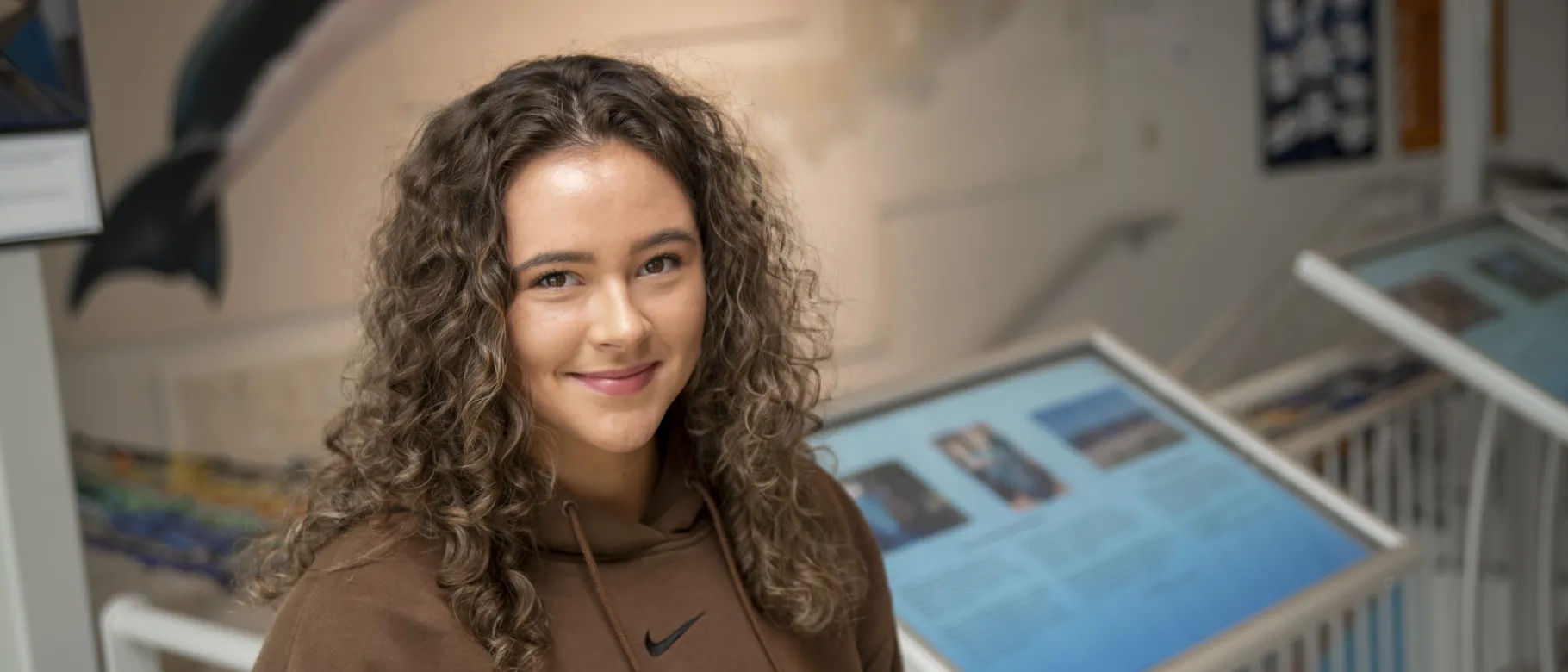UNE’s first Marine Affairs/Maine Law student is on the pathway to jurisprudence

Isabella Dube (Marine Affairs, ’24) has always had a passion for the sea. Growing up in Saco, on the banks of the city’s namesake river in a community anchored by the fishing industry, it was only natural she would build a career around the deep blue expanse. And, as a lover of true crime, she knew she was destined to become a lawyer.
So, it was fortunate for Dube to find UNE’s Maine Law 3+3 Pathways Program, a dual-enrollment program that allows Marine Affairs majors to substitute their first year of law school for their final year of education at UNE. Qualified undergraduates can complete their UNE and Juris Doctor (J.D.) degrees in a total of six years — saving them an academic year of undergraduate education and a year’s worth of UNE tuition and allowing them to enter their chosen profession a year early.
In essence, the first year of law school doubles as a student’s final year of the undergraduate education, shaving a year off the overall time required to earn the two degrees. When she leaves UNE for the University of Maine School of Law (Maine Law) later this spring, Dube will be the first UNE student to come out of the Maine Law 3+3 Pathways Program, which was established in 2019.
“To be the first to experience this and work toward being a lawyer while still being an undergraduate student feels like an incredible accomplishment, since I’ll probably be taking the bar exam at 23 or 24 years old,” Dube remarked. “I know some people take time off between their undergraduate years and going to law school, but I’m like, ‘Why not do it now?’”
As a student in the accelerated program, Dube has taken courses atypical for the average student, starting as early as her freshman year. Courses such as Introduction to Law had Dube briefing legal cases, something most undergraduate students would almost never do during their first days in college. Others, like U.S. Ocean and Coastal Law, had Dube looking at maritime issues right outside her classroom window.
“Coursework like briefing cases prepared me for law school very early on, and it set me apart from my peers going into law school,” she said.
An internship at Ocean’s Balance, a Biddeford-based company that produces sustainable edible seaweed products, helped inform Dube of the work she might do in the future. The internship inspired her capstone project, which focused on “greenwashing” — a term to describe dubious business practices that purport that a company’s products or mission are more environmentally friendly than they are — and policy aspects to prevent the practice.
Greenwashing is just one of many policy aspects Dube will encounter as she moves onto law school. Soon, she will be learning about torts, gleaning landmark cases, and exploring fellowships at the newly relocated Maine Law building, which just opened its doors steps from Portland’s working waterfront. In fact, there are so many aspects to maritime law to explore, from climate change to policy decisions about lobster traps and the endangered North American right whale, that Dube will likely have no shortage of work in the future.
“I still am not sure what I want to do with my law degree, but I think I want to work on policy and protect the blue economy in Maine,” she stated.
Susan Farady, J.D., associate professor of marine affairs at UNE, remarked that the 3+3 pathways program with Maine Law is a “fabulous” opportunity for marine affairs students.
“Isabella is our first but undoubtedly not our last student to take advantage of it,” she said. “It’s been my pleasure to work with Isabella and support her hard work the past three years. I know she will be successful in law school and has a very bright future ahead of her.”